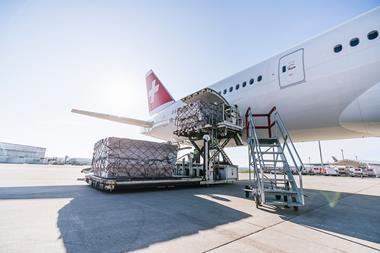As the logistics industry continues to progress towards achieving net-zero emissions, new skills will be needed to support the development of new technologies and the transition itself.
By 2032, UK recruitment agency Morson Talent has estimated that there will be 175,000 new jobs created within the transport sector alone, with "green-skilled" roles including alternative fuel experts, green aerospace and hydrogen electrolysis engineers.
UK government investments are being made across the sector into research and development aimed at driving the uptake of sustainable aviation fuels, developing zero-emission aircraft and the infrastructure of the future at our airports, however, key knowledge of eco-friendly technologies, sustainable logistics practices, and environmental regulations is urgently needed to attain sustainability.
Research shows that, encouragingly, a vast majority of the current workforce will remain working in the logistics industry, highlighting a large population who could be retrained and upskilled in low and zero emission technologies to enable the UK to meet its net-zero targets.
To achieve this, it is crucial that both industry and government focus their efforts on transferring existing skills, as well as upskilling, in addition to attracting new talent into the logistics sector.
With environment and sustainability a high priority within industry, new emerging trends and technologies are becoming ever more prominent in the airfreight sector - such as sustainable aviation fuels, electrification, and autonomous vehicles – and green skills are fundamental for ensuring their success.
Barriers to green growth
However, the aviation industry is subject to strict regulations and certifications which can increase the financial burden of adopting green skills, and cause a resistance to change, for the correct introduction of roles that require green skills.
Significant modifications need to be made to existing aviation infrastructure, a process that is both time consuming and expensive, therefore stalling the implementation of these skills into the sector.
Existing initiatives and programmes aimed at developing green skills in the airfreight sector include the IATA Environmental Assessment (IEnvA), which is aimed at independently assessing the commitment of aviation stakeholders such as airlines, airports, cargo handling facilities, freight forwarders, and ramp handlers, to improve their environmental and sustainability performance.
Apprentices play a crucial role in logistics and provide a key route to enabling the transition to a greener economy. There are many apprenticeship roles that would positively contribute to air freight’s movement to decarbonise, including Sustainable Logistics Apprentice, Renewable Energy and Electric Vehicle Technician, and Environmental Compliant Apprentice.
However, logistics businesses still face challenges in accessing their levy funds and Logistics UK is urging government to amend the apprenticeships levy into a training levy to allow for greater flexibility.
Implementing a training levy will allow companies to solve their own skills shortages in the short term and support development at all ages from those without academic qualifications and new to work to those looking for a career change.
Logistics UK believes that collaboration between industry stakeholders, educational institutions, and government bodies is vital for promoting green skills development effectively and building a sustainable future for the airfreight sector.
Logistics UK will work with members to highlight the need for green skills, as the benefits include environmental protection, operational efficiency, and business growth.
https://www.aircargonews.net/monthly-exclusive/supply-chain-spotlight-logistics-uk-route-to-net-zero/
https://www.aircargonews.net/monthly-exclusive/logistics-uk-sustainability-takes-flight/















